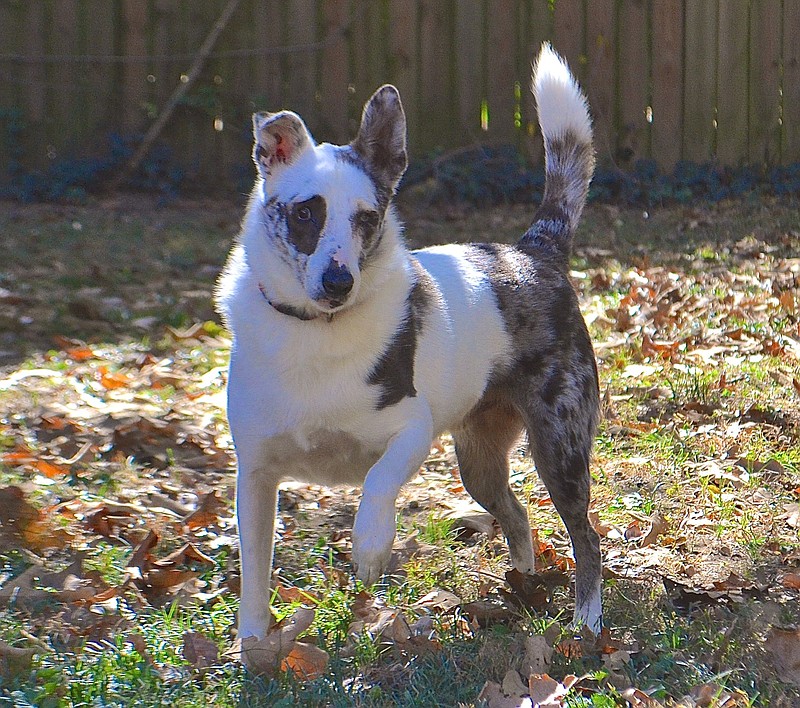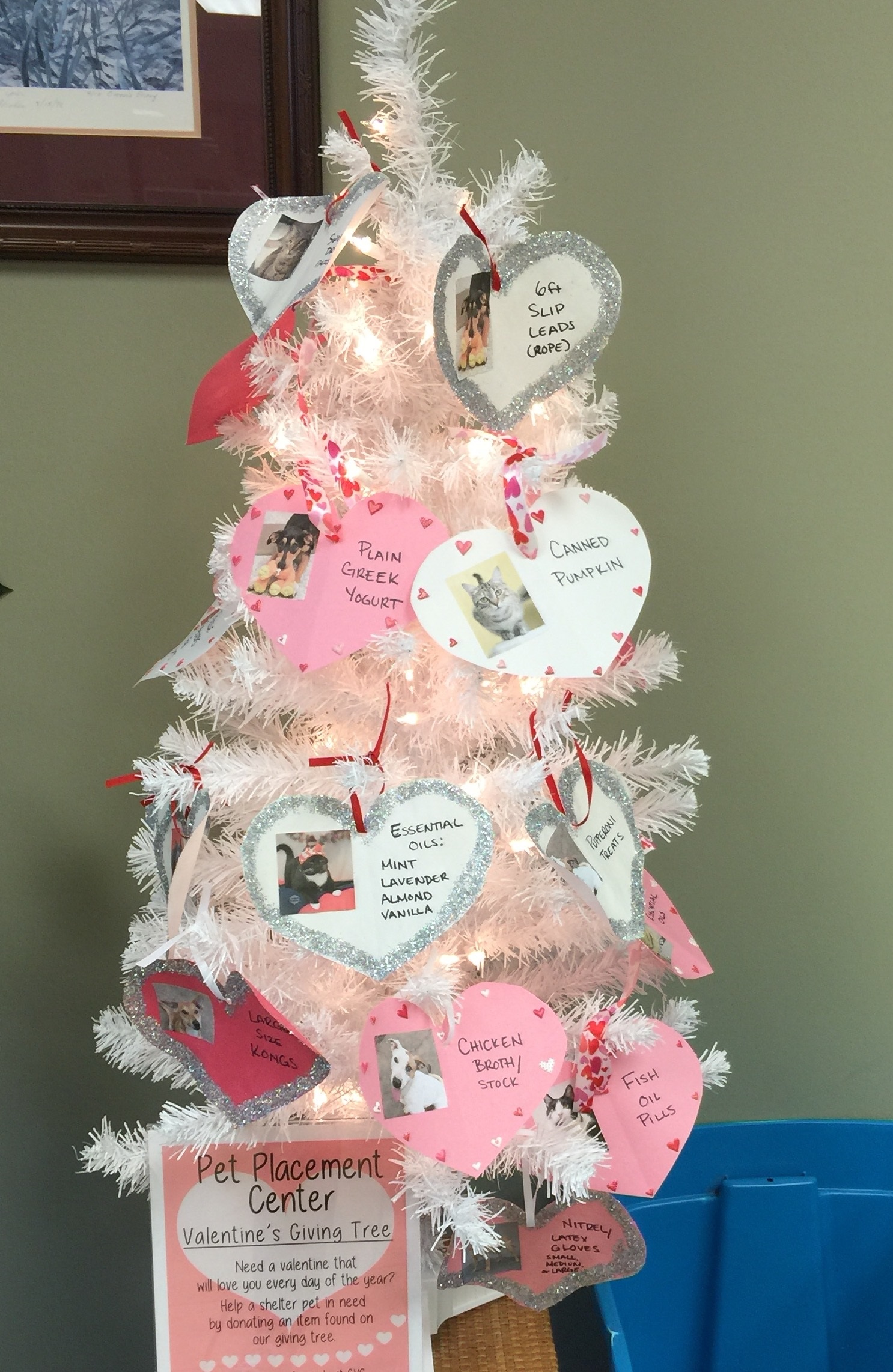Some dogs just need a bit of help before they're ready for a forever home.
The Pet Placement Center's Enrichment Program was started several months ago to help such dogs become more social and curb unwanted behavior, making them more adoptable.
Throughout the month of February, the center is asking the public to help in that process by donating through PPC's Valentine's Giving Tree, located at Chattanooga Veterinary Center. The tree is adorned with ornaments that represent different items to help with the program.
And enrichment, said PPC Executive Director Kristin Stanford, comes in all shapes and sizes.
People are encouraged to take an ornament off the tree and then drop off the corresponding item at either CVC or the shelter.
While some of the needs are broad, like chicken broth, Cheerios and slip lead leashes, others are more specific. The Enrichment Program was also made with special needs dogs in mind, Stanford said. For instance, one blind-and-deaf dog at the shelter needs a special harness for guidance.
"We're really trying to expand [the program] further so enrichment is a daily activity for all the animals," she said.
Puzzle feeders provide the dogs with extra stimulation, but also help animals that have food guarding issues become more comfortable with eating around other pups.
Other examples include scent training items to help dogs get accustomed to the smell of other animals, which makes them easier to place in homes that already have pets. Toys for play training mean the dogs can be paired up with a different partner every day to learn how to play together without overstepping boundaries, an important lesson for dogs that come from abusive or isolated homes.
"We've had great responses with the animals thus far," said Stanford. "We've noticed they're calmer and happier during their stay with us."
The public's charity with the giving tree, she said, will expand the program even further and help more dogs get adopted.
For more information, contact the Pet Placement Center at 877-0738.
Email Shane Foley at sfoley@timesfreepress.com

